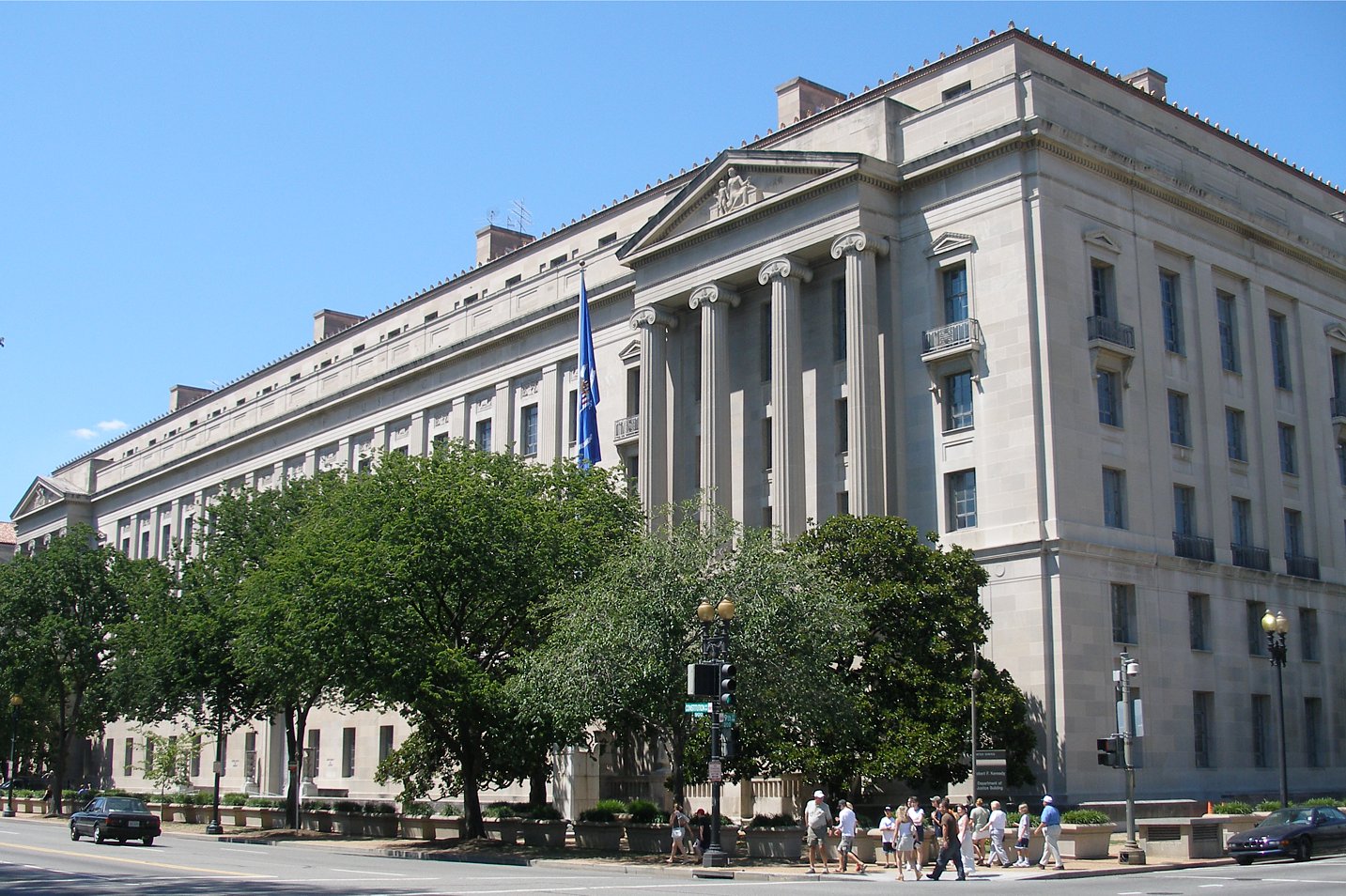
Wire Act Compliance Deadline Extended as US Gaming Stands Strong
Any legal repercussions arising from the Wire Act won’t come into effect for at least another 60 days according to the US Department of Justice (DOJ).

The Department of Justice will extend the Wire Act compliance deadline by 60 days. (Image: Wikimedia/Coolcaesar)
Following the federal body’s decision to alter its stance on the Wire Act, it’s emerged the gaming operators will have until June 14 to meet their legal obligations.
In reversing its 2011 opinion on the 1961 law, the DOJ stated that a ban on intrastate betting communication applies to all areas of the industry. Put simply, online betting and gaming sites that operate across state lines are, essentially, illegal under the Wire Act.
Wire Act Woes Continue
Opposition to the 2011 interpretation has been an ever-present threat since the decision was made.
In the weeks following the January 2019 reinterpretation, evidence emerged that casino mogul Sheldon Adelson may have been instrumental in the DOJ’s U-turn. Although Adelson is now facing his own legal issues, his actions have forced US gaming operators to examine their business models.
As per the initial press release, those with cross-state interests had 90 days to comply with the Wire Act’s restrictions. However, with three lawsuits filed in New Hampshire and others pending, the DOJ has decided to extend the deadline.
Although the legal body hasn’t gone as far as to retract its previous comments, pressure is mounting. In addition to lawsuits from gaming companies and representative organizations, operators are defiant.
Despite the Wire Act making it illegal to combine players pools, the 2019 World Series of Poker (WSOP) schedule features nine online bracelet events.
Ever since New Jersey, Nevada and Delaware started sharing player pools in 2017, the WSOP has allowed Garden State residents to take part in its online bracelet events.
Although it’s not clear what will happen this year, the operator is still hosting nine MTTs. That’s the same number of events it offered in 2018, which suggests WSOP organizers are confident of a strong turnout this summer.
Industry Operators Defiant
WSOP expectations aside, the Wire Act fallout isn’t as clear-cut as many initially feared. When the news broke, social media commentators were fearful it could be Black Friday 2.0.
Although there’s still a possibility the recent opinion could disrupt operations, US gaming is in a stronger position than it was in 2011. With states, gaming operators, technology companies and sports franchises all having an interest in the industry, a fightback is inevitable.
While it’s too early to gauge how the battle will play out, the DOJ’s decision to extend the deadline is a sign that the deck may be stacked in the industry’s favor.















0 Comments